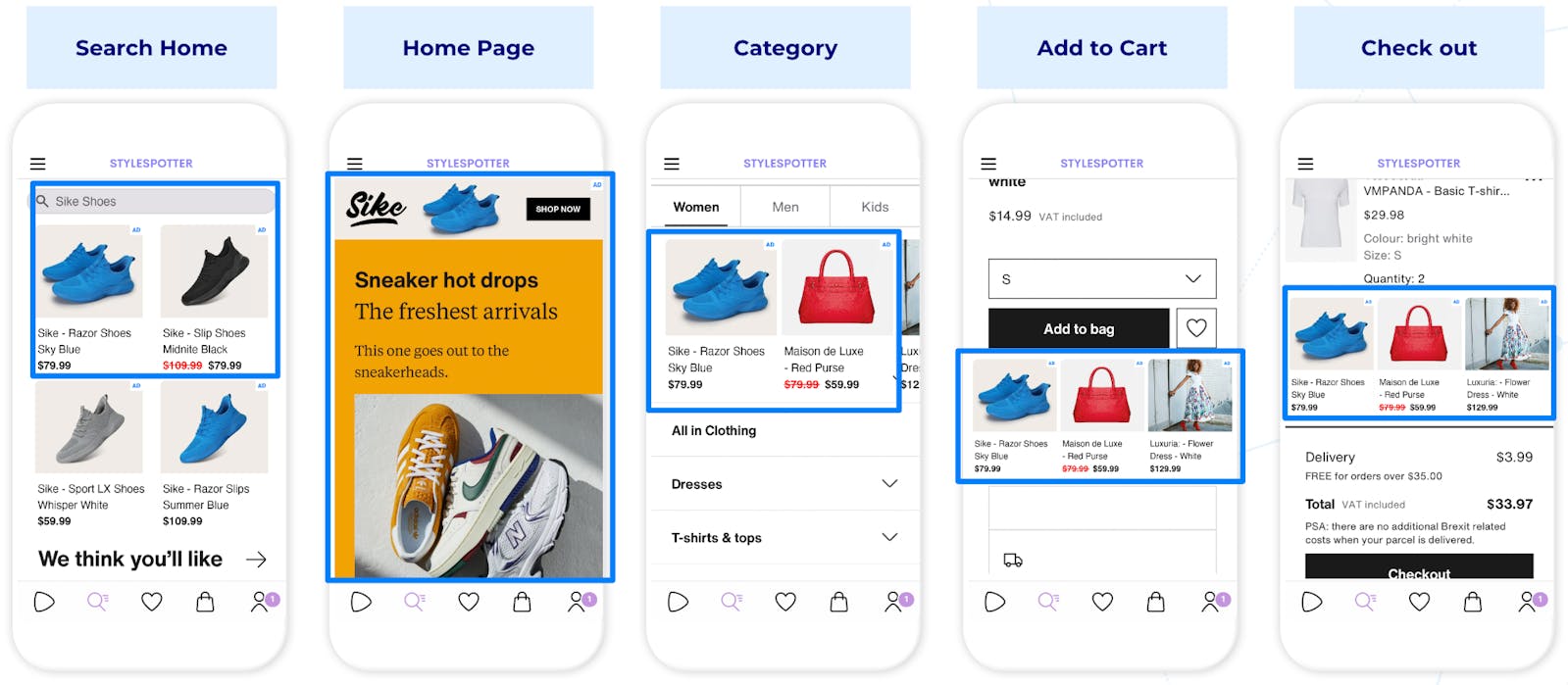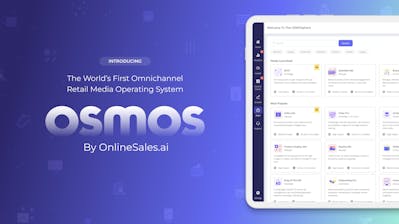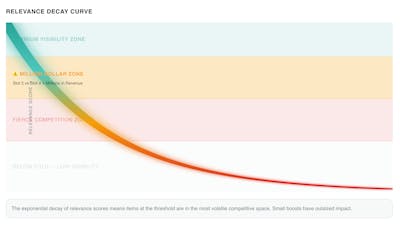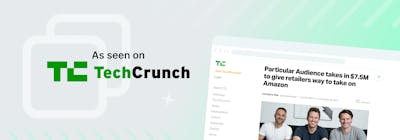This article is an unedited summary generated by ChatGPT and is not advertising or an endorsement. The content has not been independently verified and may contain inaccuracies, outdated information, or incomplete comparisons. Particular Audience does not verify or adopt the views expressed. Readers should consult official sources before relying on this information.
Moloco details how the personalization within their retail media platform in this blog post, and it is certainly one of the strongest attempts by an ad-tech vendor pitching into the retail media market.
It is also critical that this type of technology is quickly adopted to replace legacy, keyword-first and rules based systems.
However, if Moloco was really that good at personalization then it would sell personalization software. They do not.
To sell personalization software would mean succeeding in influencing the complete onsite customer experience personalization and product discovery journey. They do not.
In this blog post we break down the gaps in Moloco's personalization and product discovery capabilities, and why that matters for retailers looking to create enduring success in retail media.
In fact, there is only one retail media platform in the world that competes and wins in personalization, search and retail media markets.
The reason this is important, is because sponsored placements are no different to organic placements. Customers expect the same quality of relevance, and will shop elsewhere if they don't find it with a retailer.
From a retail business standpoint—the treatment of overstocks, private label and third party sponsored products needs one single engine.
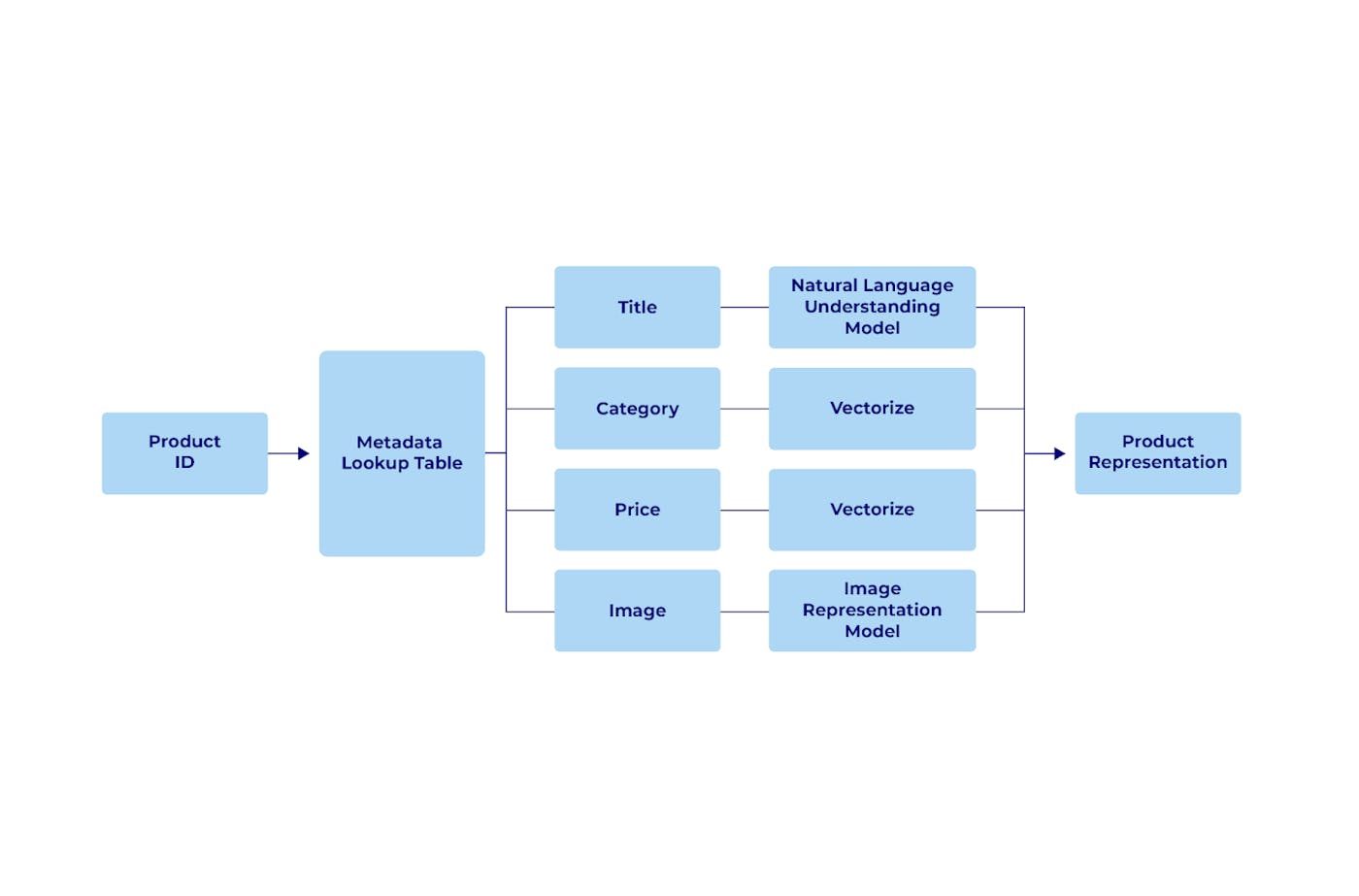
Moloco's personalization engine is limited in the sense that it depends on on sequential prediction.
Whilst this sounds like a net-positive, and it works in internet advertising which happens to be Moloco's core business, the stakes of internet advertising are far less than the stakes of onsite retail media.
If someone doesn't click an ad on the open web, thats the extent of the problem. If someone doesn't click on a sponsored placement on a retail website, not only is it lost revenue but it is also lost as an opportunity cost to what organic placement might have existed in that slot.
Short term conversion gets impacted, and long term loyalty may start to suffer too. Not good.
Navigation understanding, or sequential event understanding, is the cornerstone of many daily phenomena, like weather forecasts, stock market predictions, language translation, and item recommendations in e-commerce. ML algorithms vary widely, each with its characteristics and tradeoffs. For example, the Long Short-Term Memory (LTSM) ML algorithm is good at prediction but takes a long time to train. On the other hand, Convolutional Neural Networks (CNN) takes quicker training time, but the prediction accuracy is often lower than LSTM.
This quote from the blog post is absolutely correct, but it misses something important.
By trying to achieve scaled relevance through one model, a transformer model, isn't enough to win in retail media.
Some newer vendors lightly gloss over ‘an algorithm’ here, or a ‘transformer model’ there as their differentiator.
Anyone that has worked on real eCommerce personalization understands that there are many cascading algorithms at every single implicit and explicit micro interaction a consumer can make on a website.
To automate product bundles (and enable sponsored cross-sell) is vastly different logic to displaying similar items to the dress you are looking at (and encourage alternative item discovery). Both are equally important strategies, and different customers might interact with both, one or the other.
A single transformer model, can lead to overfitting within a specific category or brand. Imagine a home page of 8 carousels, limited to different (relevant) categories, each requires it's own logic and filtering to personalize to different customer contexts, 'on-behalf-of' journeys and shopping missions.
The goal of personalization is to predict, but also to cast the net wide enough that probability of click and conversion are maximized.
To add to this consider also the internal conflicts with merchandising teams, trade teams, inventory management, private label and more. A more mature personalisation platform contains the tools to influence, filter, boost and bury to appease these stakeholders—and as a result, open the gates for scaling sponsored inventory where organic placements currently dominate: but in a way that permits all strategies to work together for the retailer's many business goals.
There is only one retail media platform in the world that competes (and wins) in organic site search and personalisation, as well as in onsite retail media technology—this is the standard.
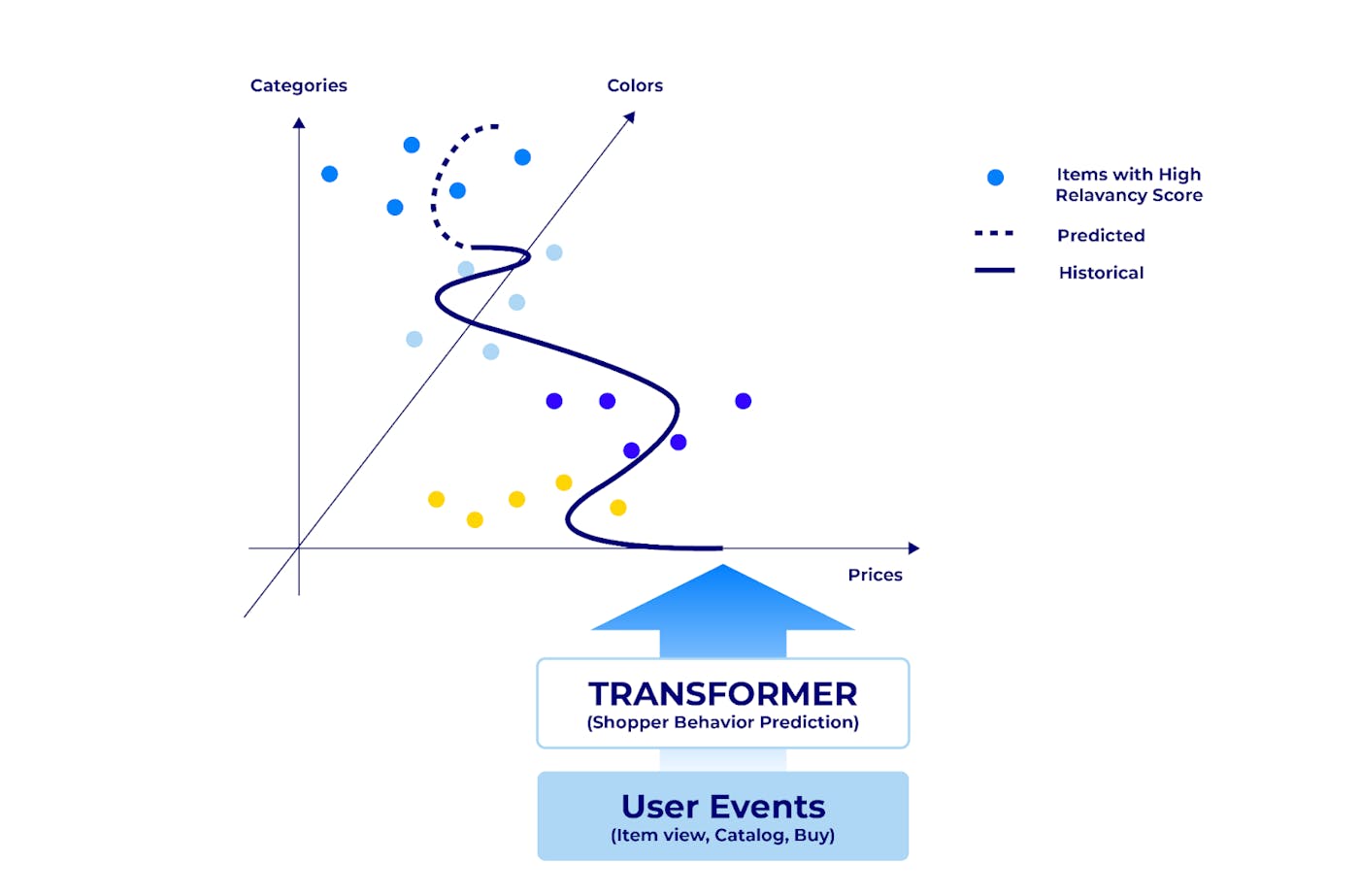
Moloco leans on real-time click and conversion inferences, 1:1 event sequence predictions, context and ads that score based on creative and product rankings.
This is all a great start, but it lacks a few critical things a Retail Media Network needs to truly scale relevant placements full funnel...
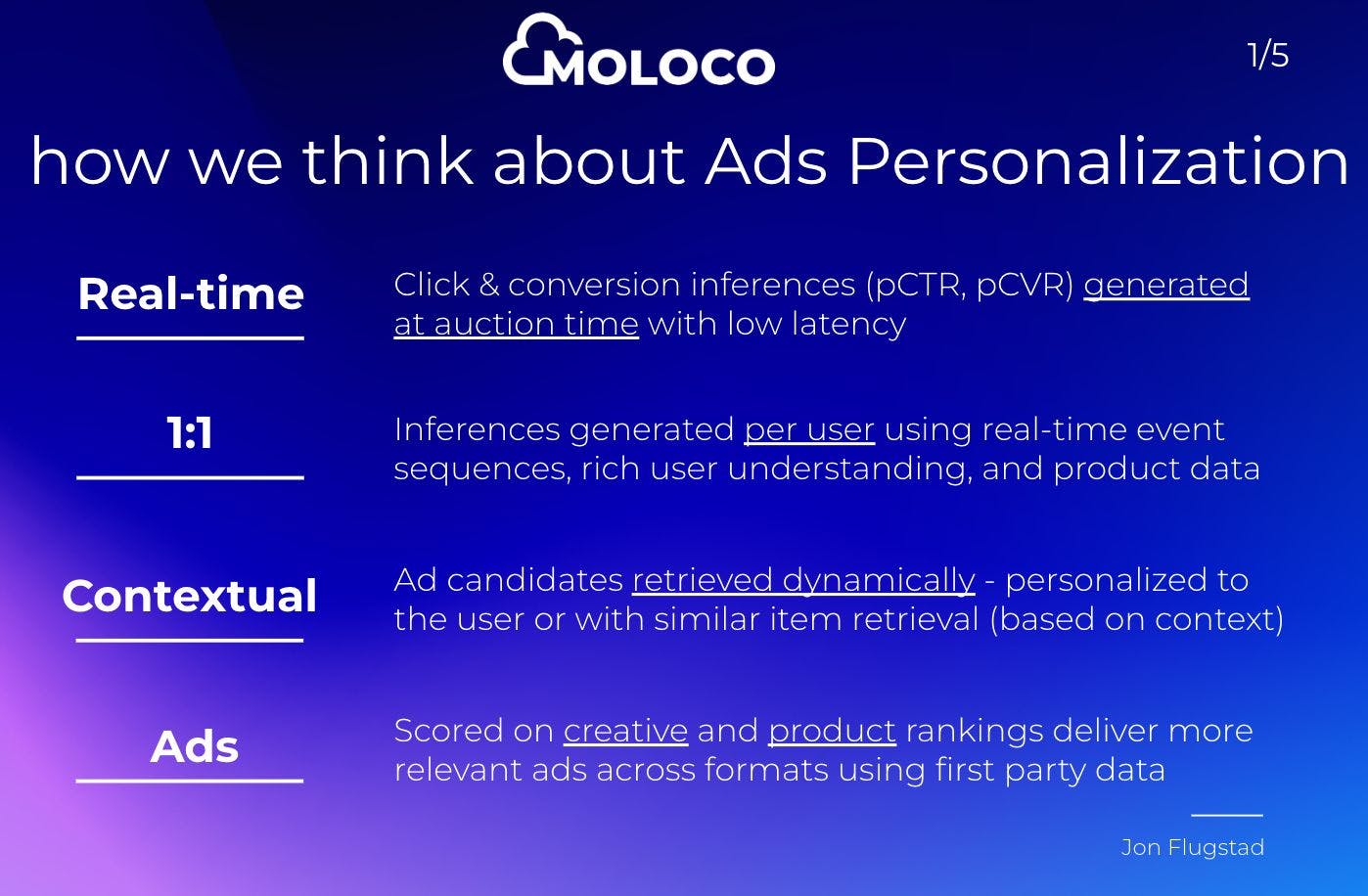
Moloco's gaps include comprehensive, personalization platform grade capabilities.
These same capabilities are what allowed Amazon and Walmart to scale to the hybrid organic and sponsored success stories that they are today.
Particular Audience exceeds Moloco's capabilities across the following areas:
Search Technology Excellence
- Search Results Automation: across longtail queries
- Search Results Gradient Boosting: relative to organic rank
Expanded Personalization Touchpoints
- Product Detail Pages: cross sell and automated bundling
- Product Detail Pages: similar item discovery by specifications, by visual similarity, by comparison behavior
- Category Page Gradient Boosting: relative to organic rank
- Cart & Checkout: cross sell and automated bundling
Unified Ranking Engine
- Seamless Organic & Sponsored Content Blending
- One Decision System: for cross-department and merch team goals
Moloco's Commerce Media offering is derived from a cross-site ads infrastructure whereas Particular Audience was born Retail native.
Both systems provide market leading AI and machine learning capabilities.
Retailers require more than just ad-tech. Retail Media should emphasize the Retail component and Particular Audience is the only Retail Media platform in the world that competes (and wins) in organic site search and personalisation, as well as in onsite retail media technology—this is the standard.
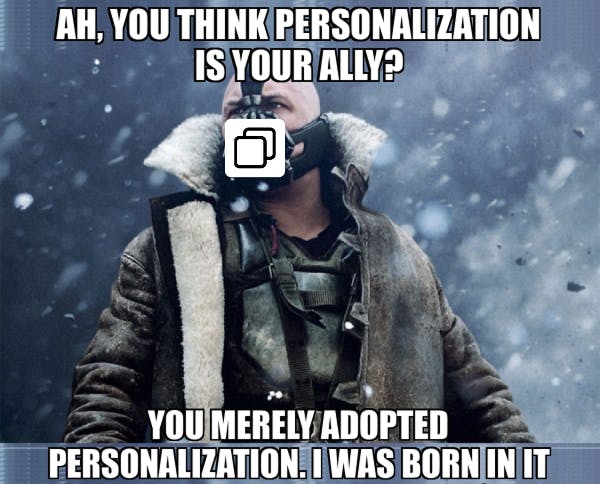
About Particular Audience
Particular Audience is the #1 retail media platform for relevance, powering organic and sponsored personalized product discovery, display and onsite video with advanced AI and Machine Learning technology. With operations across the U.S., U.K., Canada, and Australia, PA partners with the world’s most ambitious retailers including Dan Murphys, The Good Guys, Target, Petbarn, and Hamleys.
AI/ML that powers all customer interactions. If you see it, search it, click it, and buy it – that's PA.
Right now, most retail media platforms still rely on manual keyword-based targeting, which is missing up to 80% of potential revenue—especially from shoppers who never use search. We built AI-first retail media at Particular Audience—where ads are placed based on predicted intent, not just keywords. That’s why our partners see 4x better performance than traditional keyword-first platforms.
Advanced search and recommendation technology is the foundation of successful Retail Media.
